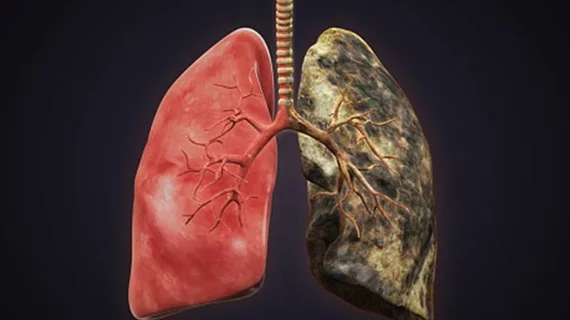Lawmakers introduce legislation to increase lung screening for U.S. coal miners
To help combat the recent resurgence of black lung disease in U.S. coal miners, U.S. Sen. Mark Warner, D-Virginia, recently introduced bipartisan legislation to increase participation in federal programs that treat or detect the disease through lung cancer screening, including lung CT scans, according to a recent press release published Aug. 22.
Sen. Warner filed amendment no. 3695 to the defense, labor, health and education spending package currently under consideration by U.S. Senate (H.R. 6157), according to the press release.
The legislation was officially introduced to the U.S. Senate on Aug. 22 and is co-sponsored by Sens. Shelley Moore Capito, R-West Virginia, Time Kaine, D-Virginia, Joe Machin, D-West Virginia, Bob Casey, D-Pennsylvania, and Sherrod Brown, D-Ohio.
“Black lung is a deadly disease, but the earlier it’s detected, the better the outcomes are. Underground coal miners help keep the heat and the lights on, but often at a significant cost to their own health,” Warner said in a prepared statement. “By improving outreach efforts, we can make sure that more miners are getting screened, so we can catch cases of black lung early, and make sure that they can get the treatment they need.”
The amendment requires the National Institute for Occupation Safety and Health to submit a report to Congress on ways to improve efforts to increase participation in the Coal Workers’ Health Surveillance Program (CWHSP) and investigate factors that prevent coal miners with black lung from getting treatment.
CWHSP offers free health screening services to U.S. coal miners and retirees, including chest x-rays, lung function testing and other health surveillance and treatment services. However, only 35 percent of active miners and retirees currently participate in the national program, according to the press release.
“This amendment will assist Congress in determining how to improve the Program, thereby enabling it to best serve miners,” said Rick Shinn, director of government affairs of the Virginia Community Healthcare Association. “The amendment could also lead to better participation in the Surveillance Program, help save lives, improve early identification of black lung, and ultimately improve health outcomes for current and future health center patients throughout the Commonwealth of Virginia.”
Warner’s amendment is also supported by a study published online Aug. 8 by the American Journal of Public Health, which examined the number of U.S. coal miners with black lung disease — coal workers' pneumoconiosis—from 1970 to 2017.
The research found one in five working coal miners in Appalachian coal mining states who have worked at least 25 years currently suffer from black lung disease—the highest rate of black lung since before the early 1990s.
Additionally, researchers found that the most severe form of the disease—progressive massive fibrosis—occurs in five percent of retired miners in Appalachia, the highest rate ever recorded.
Original text of Warner’s amendment can be seen here.

